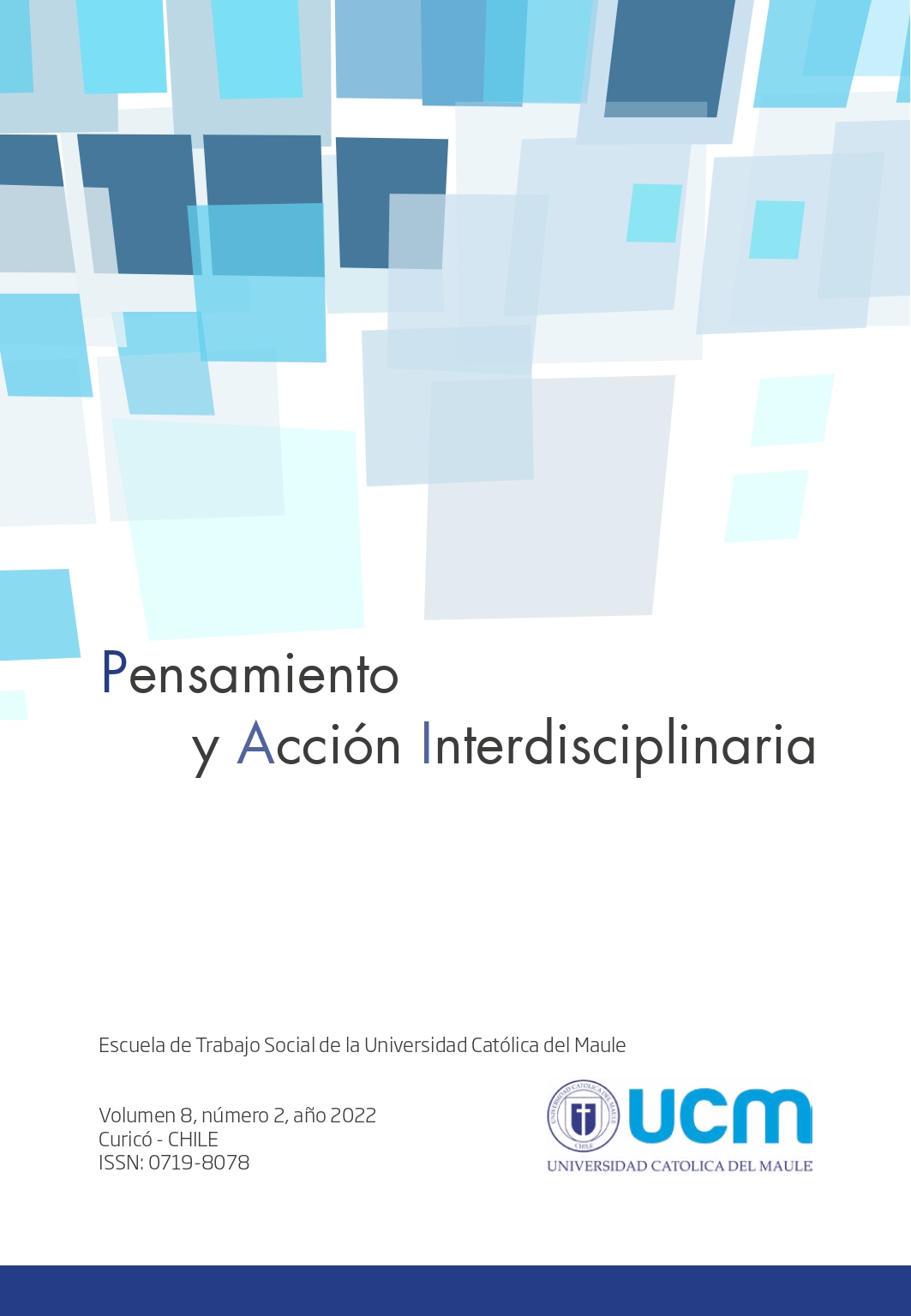Generatividad relativa a la salud. Una estrategia para el envejecimiento saludable desarrollada en México
Contenido principal del artículo
Resumen
Detalles del artículo
Baltes, P. B. y Baltes, M. M. (1990). Psychological perspectives on successful aging: The model of selective optimization with compensation. En P. B. Baltes y M. M. Baltes (Eds.), Successful aging: Perspectives from the behavioral sciences (pp. 1-34). Cambridge University Press. https://doi.org/10.1017/CBO9780511665684.003
Banerjee, D., Mukhopadhyay, S., Rabheru, K., Ivbijaro, G. y de Mendonca Lima, C. A. (2021). Not a disease: A global call for action urging revision of the ICD-11 classification of old age. The Lancet Healthy Longevity, 2(10), Artículo e610-e612. https://doi.org/10.1016/s2666-7568(21)00201-4
Benito-Ballesteros, A., y de la Osa Subtil, I. (2020). La generatividad a través de la cultura. Una revisión sistemática. Tendencias Sociales, (5), 63-79.
Becchetti, L. y Bellucci, D. (2020). Generativity, aging and subjective well-being. International Review of Economics, (68). https://doi.org/10.1007/s12232-020-00358-6
Bordignon, N. A., (2005). El desarrollo psicosocial de Eric Erikson. El diagrama epigenético del adulto. Revista Lasallista de Investigación, 2(2), 50-63. https://www.redalyc.org/articulo.oa?id=69520210
Cheng S. T. (2009). Generativity in later life: Perceived respect from younger generations as a determinant of goal disengagement and psychological well-being. The Journals of Gerontology. Series B, Psychological Sciences and Social Sciences, 64(1), 45-54. https://doi.org/10.1093/geronb/gbn027
Chen, Y.-C., Hung, N., Lau, B. H. P., Choy Yung, R. M. P., Fung, E. S. M. y Chan, C. L. W. (2022). Generativity and gendered pathways to health: The role of human, social, and financial capital past mid-life. International Journal of Environmental Research and Public Health, 19(9), 4956. https://doi.org/10.3390/ijerph19094956
Fabre, D.P. (2009). La labor socioeducativa desde el capital social comunitario y el autodidactismo solidario. Revista Argentina de Sociología, 7(12-13), 95-124. https://www.redalyc.org/articulo.oa?id=26912284005
Fernández-Ballesteros, R., Zamarrón, M. D., Díez-Nicolas, J., López-Bravo, M. D., Molina, M.A., y Schettini, R. (2011). Productivity in old age. Research on aging, 33(2), 205-226. https://doi.org/10.1177/0164027510395398
González, C. A., y Ham-Chande, R. (2007). Funcionalidad y salud: una tipología del envejecimiento en México. Salud Pública de México, 49 (Suppl 4), S448-S458.
Gruenewald, T. L., Liao, D. H., y Seeman, T. E. (2012). Contributing to others, contributing to oneself: perceptions of generativity and health in later life. The Journals of Gerontology. Series B, Psychological Sciences and Social Sciences, 67(6), 660-665. https://doi.org/10.1093/geronb/gbs034
Gutiérrez, J.P., Rivera, J., Shamah, T., Oropeza, C., y Hernández Ávila, M. (2012). Encuesta Nacional de Salud y Nutrición 2012. Resultados Nacionales. Instituto Nacional de Salud Pública (MX), 117-126.
Hayflick, L. (1996). How and why we age. Ballantine Books.
Khaltourina, D., Matveyev, Y., Alekseev, A., Cortese, F., y Ioviţă, A. (2020). Aging fits the disease criteria of the International Classification of Diseases. Mechanisms of Ageing and Development, 189, 111230. https://doi.org/10.1016/j.mad.2020.111230
Kotre, J. (1984). Outliving the self: Generativity and the interpretation of lives. Johnson Hopkins University Press.
Martínez-Maldonado, M. L., Vivaldo-Martínez, M., y Mendoza-Núñez, V. M. (2016). Comprehensive gerontological development: a positive view on aging. Gerontology & Geriatric Medicine, 2, 2333721416667842. https://doi.org/10.1177/2333721416667842
McAdams, D. P., y de St. Aubin, E. (1992). A theory of generativity and its assessment through self-report, behavioral acts, and narrative themes in autobiography. Journal of Personality and Social Psychology, 62(6), 1003-1015. http://dx.doi.org/10.1037/0022-3514.62.6.1003
McAdams, D. P., St Aubin, E. D., y Logan, R. L. (1993). Generativity among young, midlife, and older adults. Psychology and Aging, 8(2), 221-230. http://dx.doi.org/10.1037/0882-7974.8.2.221
Mendoza-Núñez, V.M. (2013). Envejecimiento saludable. En PAC Medicina General (5ª ed, pp. 162-229). Intersistemas Editores.
Mendoza-Núñez, V.M., Martínez-Maldonado, M.L., y Vargas-Guadarrama, L.A. (2013). Envejecimiento Activo y Saludable. Fundamentos y Estrategias desde la Gerontología Comunitaria. FES ZARAGOZA, UNAM.
Mendoza-Núñez, V. M., Martínez-Maldonado, M. d. l. L. y Vivaldo-Martínez, M. (2016). What is the onset age of human aging and old age? International Journal of Gerontology, 10(1), 56. https://doi.org/10.1016/j.ijge.2015.06.004
Mendoza-Núñez, V. M., Vivaldo-Martínez, M., y Martínez-Maldonado, M. L. (2018). Modelo comunitario de envejecimiento saludable enmarcado en la resiliencia y la generatividad [Community model of healthy aging framed in resilience and generativity]. Revista Médica del Instituto Mexicano del Seguro Social, 56(Suppl 1), S110-S119.
Mendoza-Núñez, V. M. y Vivaldo-Martínez, M. (2019). Community gerontology model for healthy aging developed in mexico framed in resilience and generativity. Journal of Cross-Cultural Gerontology, 34(4), 439-459. https://doi.org/10.1007/s10823-019-09385-5
Organización Mundial de la Salud. (2015). Informe mundial sobre el envejecimiento y la salud. Organización Mundial de la Salud. https://apps.who.int/iris/bitstream/handle/10665/186466/9789240694873_spa.pdf
Organización de Naciones Unidas (1979). Reunión sobre envejecimiento. ONU.
Ramírez-Arellano, O. A., García-Méndez, M., Garduño-Espinosa, J., Vargas[1]Guadarrama, L. A. y Mendoza-Núñez, V. M. (2021). Reliability of a scale for the evaluation of generativity relative to health (gereh) in the mexican population in the aging process. Diagnostics, 11(10), 1833. https://doi.org/10.3390/diagnostics11101833
Seals, D. R., Justice, J. N., y LaRocca, T. J. (2016). Physiological geroscience: targeting function to increase healthspan and achieve optimal longevity. The Journal of Physiology, 594(8), 2001-2024. https://doi.org/10.1113/jphysiol.2014.282665
Thomas, L.D.W. y Tee, R. (2022) Generativity: A systematic review and conceptual framework. International Journal of Management Reviews, 24(2), 255-278. https://doi.org/10.1111/ijmr.12277
Villar, F. y Serrat, R. (2014). La participación cívica de las personas mayores como expresión la generatividad en la vejez. Estudos Interdisciplinares sobre o Envelhecimento, 19(2), 345-358. https://doi.org/10.22456/2316-2171.44952
World Health Organization (2015). World report on ageing and health. WHO. http://apps.who.int/iris/bitstream/10665/186463/1/9789240694811_eng.pdf
Zacarés, J.J. y Serra, E. (2011). Explorando el territorio del desarrollo adulto: la clave de la generatividad. Cultura y Educación, 23(1),75-88. http://dx.doi.org/10.1174/113564011794728533

Este obra está bajo una licencia de Creative Commons Reconocimiento-NoComercial-CompartirIgual 4.0 Internacional.

